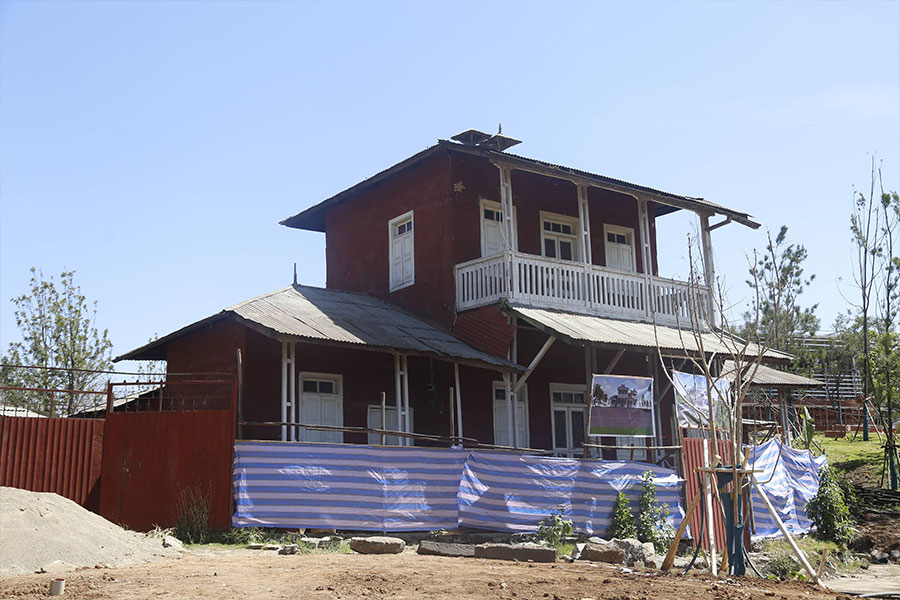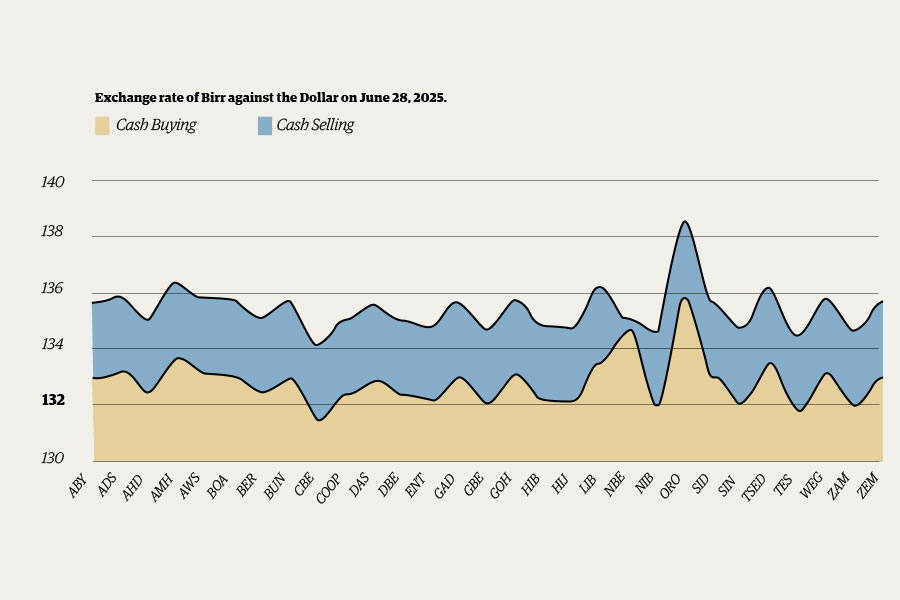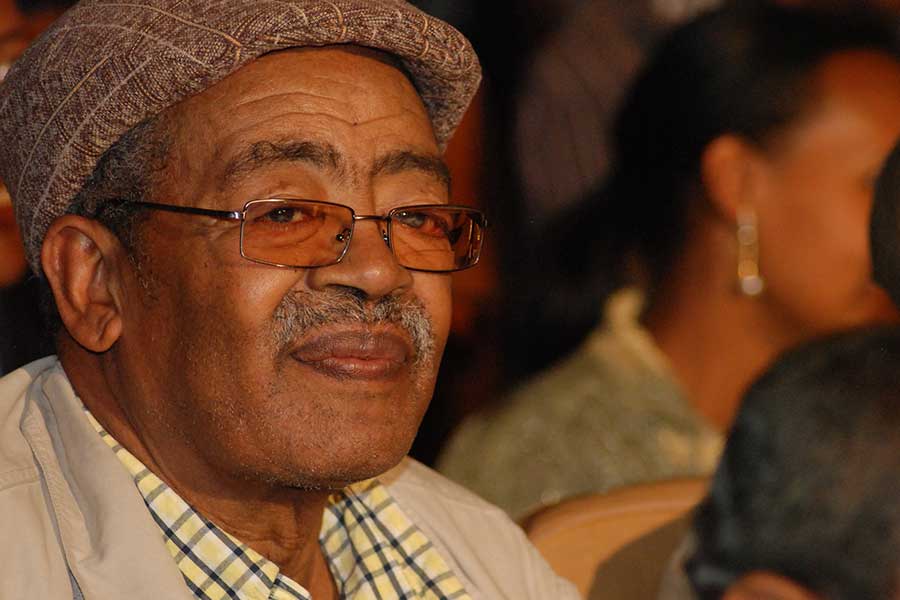
Fortune News | Jan 29,2022
Sep 21 , 2024
By Girma Mamo
A recent televised conversation Addis Walta TV had with Endalew Mekonnen, state minister for Trade & Regional Integration (MoTRI), should provoke public debate over the Ethiopian Quality Award (EQA) and its credibility. The State Minister touted the EQA as a "nationally recognised honour," pointing to the grandeur of its ceremonies and the involvement of the country's President as evidence of its prestige.
Yet, questions linger about the moral purpose of such awards and whether they genuinely reflect the achievements they claim to acknowledge.
Awards are traditionally bestowed upon individuals, companies, and institutions to recognise accomplishments based on predefined criteria. Recipients often leverage these honours to promote their image, motivate further success, or gain a competitive edge. However, some awards have recently been criticised for straying from their moral objectives, appearing more controversial than genuine acknowledgements of excellence.
Consider the case of former Prime Minister Meles Zenawi, who received the Yara Prize in 2012 for his contributions to agricultural development and food security in Africa. Despite this recognition, the late Prime Minister faced criticism over human rights abuses and political repression. These severe concerns overshadowed his achievements in agriculture, raising questions about the award's validity. Similarly, Prime Minister Abiy Ahmed (PhD) was honoured with the Food & Agriculture Organization's (FAO) Future Policy Award in 2020. Yet, his tenure also did not escape from being criticised. These have led to a contradictory perception on the merit of the accolades he received.
Domestic companies have also experienced this contradiction.
Ethiopian Airlines Group has garnered numerous awards from prestigious organisations like the Skytrax World Airline Awards and the International Air Transport Association (IATA). However, the Airline has faced complaints about safety and operational issues, particularly following accidents. Ethio telecom has been recognised by the Africa telecoms and Global Mobile awards but is criticised for monopolistic practices and stifling competition. Even coffee exporters, lauded by the Specialty Coffee Association of America, have faced scrutiny over environmental sustainability practices and labour issues.
These cases illustrate a troubling pattern in which accolades are granted, but subsequent realities reveal shortcomings.
Hence, why do recognitions fail to anticipate underlying issues?
Contrasts between the parameters used for recognition and those considered during reviews could be one. Another could be that award recipients may stage ad-hoc arrangements to impress judges, masking the underlying issues. Perhaps more concerning is the moral integrity of award providers themselves.
If an award is commoditised — subject to fees, opaque criteria, and undisclosed contest polls — can it genuinely serve its intended purpose?
Some award-granting institutions demand registration fees, lack transparent criteria for shortlisting, and keep their evaluation processes undisclosed. Such practices understandably breed scepticism.
During the interview with Addis Walta TV, the State Minister emphasised that the EQA is recognised by the federal government, contrasting it with international awards like the Malcolm Baldrige National Quality Award in the U.S. and Japan's Deming Prize, both established by their respective governments. However, there should be a noteworthy distinction between "recognised" and "established." Governments could initiate national quality awards in many developed and developing countries to promote excellence, values, economic development, and healthy competition.
How does government recognition manifest for the EQA? Is it merely through ceremonial patronage, such as the President's appearance, or is there substantive support and endorsement?
The importance of government-established quality awards cannot be overstated. The Malcolm Baldrige Award, for instance, was created to enhance the competitiveness of U.S. businesses. Japan's Deming Prize was instrumental in rebuilding the post-war economy by promoting quality control and management practices. These awards have unambiguous objectives and transparent criteria; government resources and oversight finance them.
Protecting the integrity of such initiatives is essential. When asked how to safeguard genuine awards from bogus counterparts, the State Minister suggested leaving the precautions to competing companies. However, companies might prioritise the promotional benefits of any award, regardless of its legitimacy. Relying on them to uphold the integrity of quality awards may be futile.
Legal frameworks could offer solutions. Governments can act against entities that advertise deceptive claims or confer misleading awards. National quality award organisations could pursue legal action for unfair competition. Consumer protection agencies can intervene when awards mislead the public. The authorities could also promote consumer education and actively monitor the marketplace to pre-empt potential infringements.
PUBLISHED ON
Sep 21,2024 [ VOL
25 , NO
1273]


Fortune News | Jan 29,2022

Viewpoints | Jul 01,2023

Viewpoints | Mar 11,2023

Money Market Watch | Jul 06,2025

Viewpoints | Mar 18,2023

Obituary | Oct 12,2019

View From Arada | Oct 05,2024

Commentaries | Sep 19,2020

Life Matters | Jun 22,2024

View From Arada | Mar 13,2021

Photo Gallery | 178623 Views | May 06,2019

Photo Gallery | 168816 Views | Apr 26,2019

Photo Gallery | 159649 Views | Oct 06,2021

My Opinion | 137089 Views | Aug 14,2021
Commentaries | Oct 25,2025

Dec 22 , 2024 . By TIZITA SHEWAFERAW
Charged with transforming colossal state-owned enterprises into modern and competitiv...

Aug 18 , 2024 . By AKSAH ITALO
Although predictable Yonas Zerihun's job in the ride-hailing service is not immune to...

Jul 28 , 2024 . By TIZITA SHEWAFERAW
Unhabitual, perhaps too many, Samuel Gebreyohannes, 38, used to occasionally enjoy a couple of beers at breakfast. However, he recently swit...

Jul 13 , 2024 . By AKSAH ITALO
Investors who rely on tractors, trucks, and field vehicles for commuting, transporting commodities, and f...

Oct 25 , 2025
The regulatory machinery is on overdrive. In only two years, no fewer than 35 new pro...

Oct 18 , 2025
The political establishment, notably the ruling party and its top brass, has become p...

Oct 11 , 2025
Ladislas Farago, a roving Associated Press (AP) correspondent, arrived in Ethiopia in...

Oct 4 , 2025
Eyob Tekalegn (PhD) had been in the Governor's chair for only weeks when, on Septembe...

Oct 25 , 2025 . By YITBAREK GETACHEW
Officials of the Addis Abeba's Education Bureau have embarked on an ambitious experim...

Oct 26 , 2025 . By YITBAREK GETACHEW
The federal government is making a landmark shift in its investment incentive regime...

Oct 29 , 2025 . By NAHOM AYELE
The National Bank of Ethiopia (NBE) is preparing to issue a directive that will funda...

Oct 26 , 2025 . By SURAFEL MULUGETA
A community of booksellers shadowing the Ethiopian National Theatre has been jolted b...